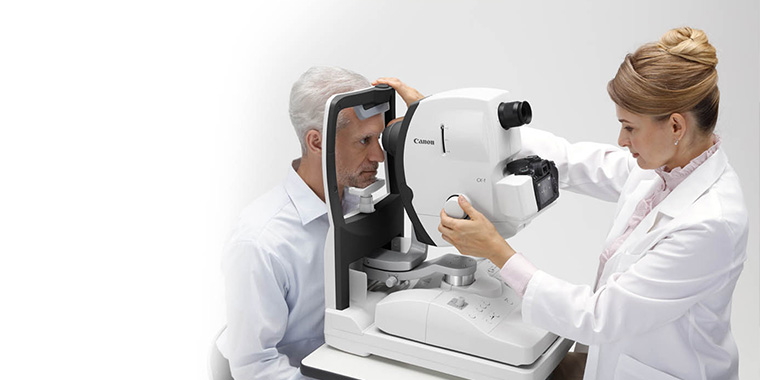Is Refractive Surgical Procedure Right for You? Aspects to Take Into Consideration for Better Eyecare
In the world of eye treatment, the choice to undergo refractive surgery is a crucial one that requires thoughtful consideration. From the details of one's ocular health and wellness to the intricacies of everyday habits and personal expectations, each facet holds importance in the more comprehensive landscape of refractive surgical procedure candidacy.
Eye Wellness Examination
When taking into consideration refractive surgical procedure, a detailed eye health analysis is crucial to analyze the viability of the treatment for every individual. neurologist andalusia. This assessment involves a collection of examinations and examinations performed by an eye treatment expert to identify the overall health of the eyes, the presence of any type of hidden problems, and the security of the refractive mistake
Throughout the examination, various factors are considered, such as the client's medical background, existing eye prescription, corneal thickness, pupil size, and tear film top quality. These evaluations help to recognize any type of contraindications to refractive surgery, such as corneal problems, cataracts, or unattended eye infections. Additionally, the examination assists to manage person expectations relating to the possible results of the surgery based on their special eye features.
Inevitably, the eye health analysis is necessary in making certain the security and performance of refractive surgical procedure, as it provides beneficial understandings into the person's eye health and wellness condition and helps identify the most suitable treatment alternatives for achieving optimum aesthetic outcomes. (neurologist andalusia)
Way Of Living Assessment
A detailed lifestyle evaluation is important in determining the viability of refractive surgical treatment for an individual's aesthetic correction requirements. Way of living aspects such as occupation, pastimes, and daily activities play a crucial function in the decision-making process concerning refractive surgical treatment.
Furthermore, lifestyle practices such as sports engagement, outside tasks, or even skin care regimens can affect the recovery process and general success of refractive surgical procedure. For instance, people that take part in contact sports may require to take additional precautions to safeguard their eyes throughout the recuperation duration. Furthermore, individuals with comprehensive sunlight exposure might call for extra post-operative like avoid complications. By conducting a thorough way of living evaluation, eye care professionals can tailor their referrals and therapy plans to satisfy the distinct needs of each client, ultimately resulting in boosted aesthetic end results and satisfaction.
Expectation Positioning

Clients need to comprehend that while lots of people accomplish 20/20 vision or much better adhering to refractive surgical treatment, some might still need glasses for specific activities like analysis or driving at night. Handling these expectations assists avoid disappointment and dissatisfaction post-surgery, leading to a more favorable general experience for the patient.
Danger Evaluation

Variables that may enhance the risk of difficulties consist of age, particular medical conditions like autoimmune illness, unpredictable vision prescription, slim corneas, and unrealistic patient assumptions. Additionally, selecting a seasoned and skilled doctor, complying with pre and post-operative care directions carefully, and disclosing any kind of pertinent clinical background can assist mitigate dangers.
To reduce the likelihood of problems, ophthalmologists carry out complete pre-operative evaluations to determine any contraindications to surgery. They also go over the possible threats and advantages with individuals during the consultation process. By participating in open communication and shared decision-making, both the patient and the ophthalmologist can function with each other to identify if refractive surgery is the best option based on specific danger profiles and wanted outcomes.
Consultation Significance
Considering the crucial role of notified decision-making in assessing risks and possible complications in refractive surgical treatment, the assessment process holds significant importance in leading individuals in the direction of optimal end results. During the assessment, the ophthalmologist reviews the patient's eye wellness, refractive errors, and total viability for surgical procedure. This first evaluation is critical in figuring out one of the most ideal procedure for each and every person, thinking about aspects such as corneal density, student dimension, and existing eye conditions.
Moreover, the appointment functions as a chance for patients to review their expectations, worries, and any kind of questions they go to these guys might have relating to the surgical treatment. Clear interaction between the doctor and the individual is vital to guarantee reasonable assumptions and a thorough understanding of the prospective threats and advantages involved.
Additionally, the assessment enables the cosmetic surgeon to discuss the different surgical alternatives available, their particular results, and the post-operative care needed. This detailed conversation equips individuals to make educated choices concerning their eye treatment, resulting in far better complete satisfaction and end results post-surgery.
Conclusion
To conclude, individuals thinking about refractive surgical treatment ought to undergo a comprehensive eye health assessment, analyze their lifestyle habits, align their expectations with possible end results, evaluate the involved threats, and prioritize appointments with eye care experts. These variables play an essential duty in establishing the suitability of refractive surgery for every person, ensuring optimum outcomes and contentment with the procedure.
People thinking about refractive surgical procedure frequently have high assumptions relating to the results, anticipating perfect vision without the demand for glasses or get in touch with lenses. While refractive surgery can substantially boost vision and lower reliance on visual help, it is vital for patients to comprehend that outcomes might vary based on specific elements such as the level of refractive error, corneal thickness, and overall eye wellness.
By engaging in open interaction and shared decision-making, both the ophthalmologist and the person can work together to identify if refractive surgical treatment is the ideal option based on private risk accounts and wanted end click now results.
Taking into consideration the vital function of notified decision-making in examining risks and potential problems in refractive surgical treatment, the assessment process holds considerable value in assisting individuals towards optimal end results. During the assessment, the eye doctor reviews the person's eye health and wellness, refractive errors, and total suitability for surgical procedure.